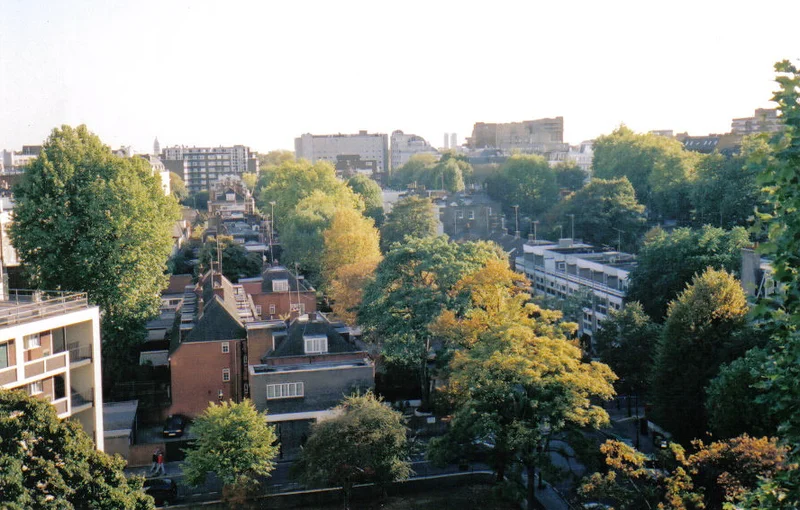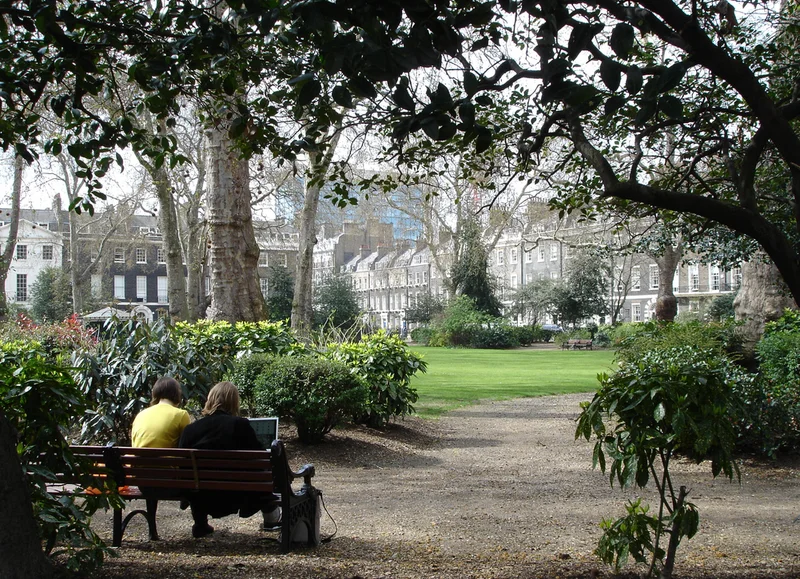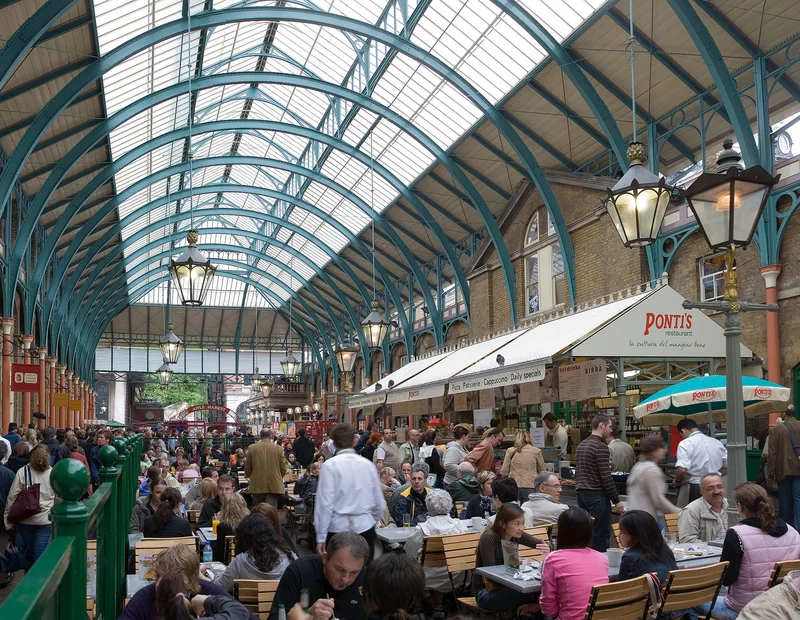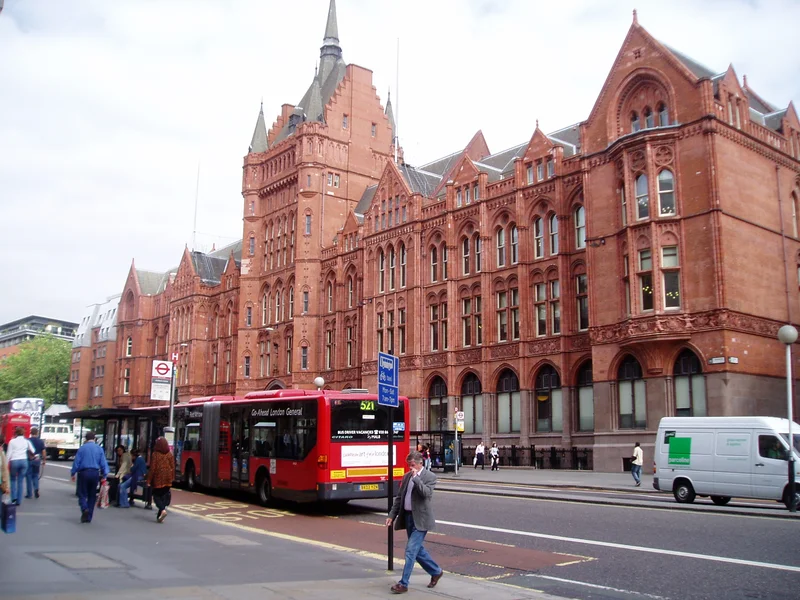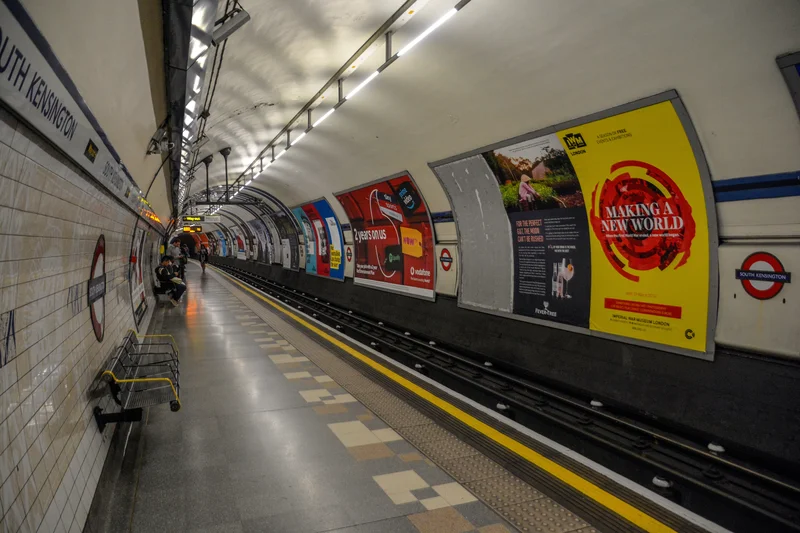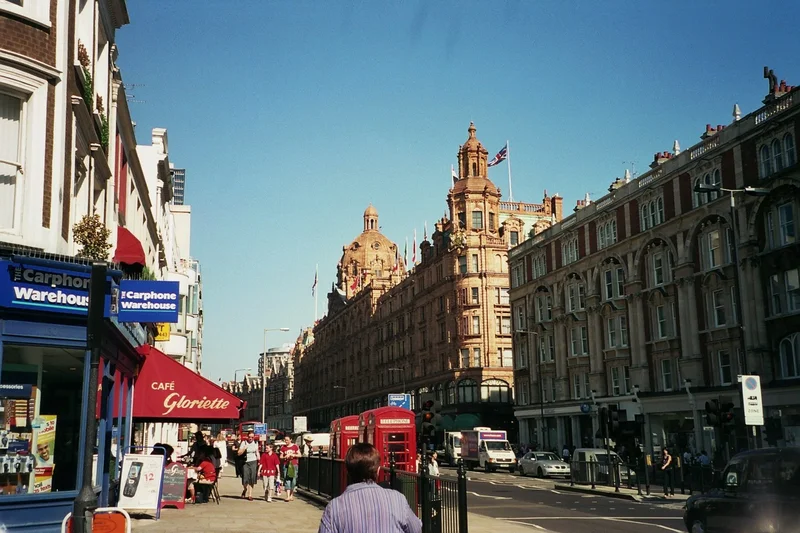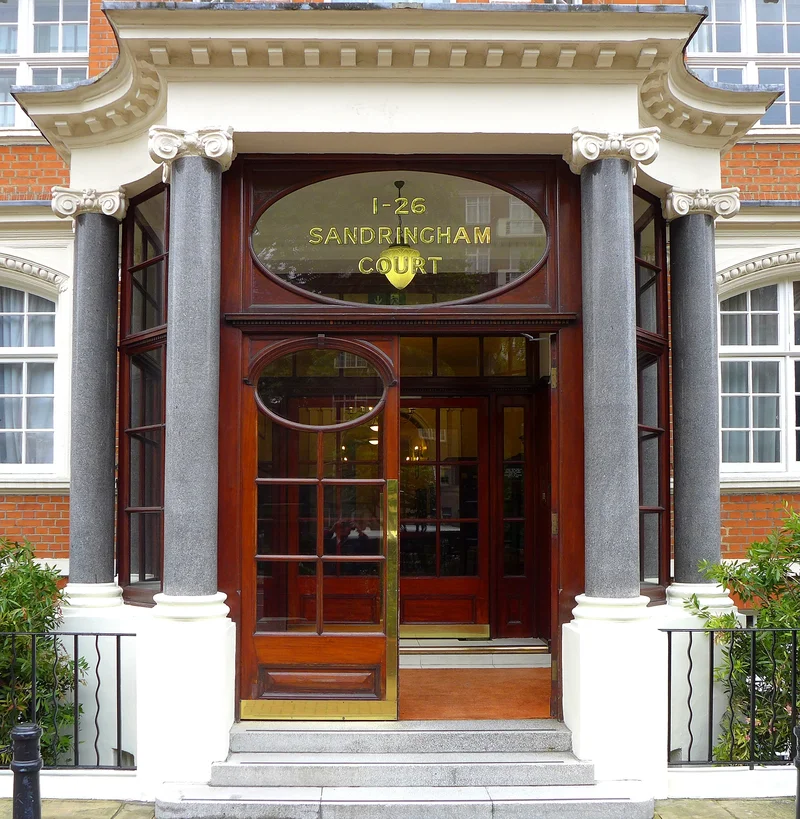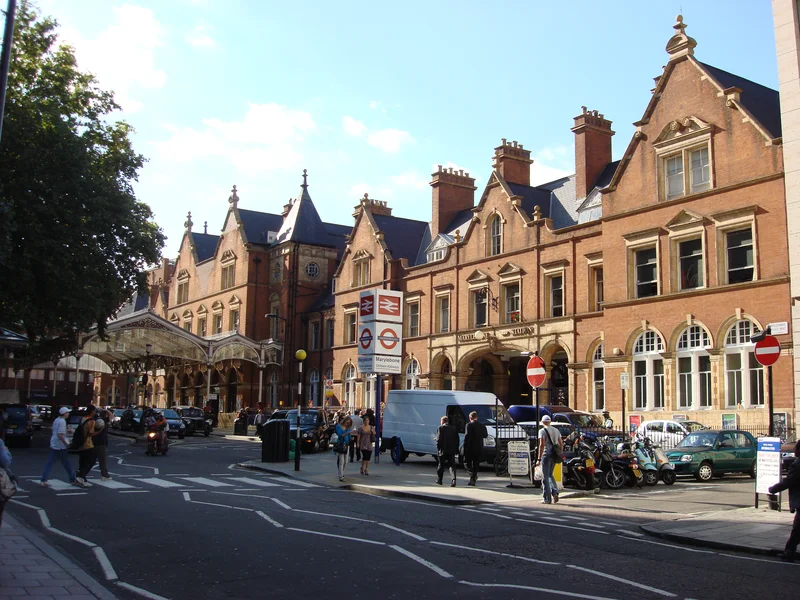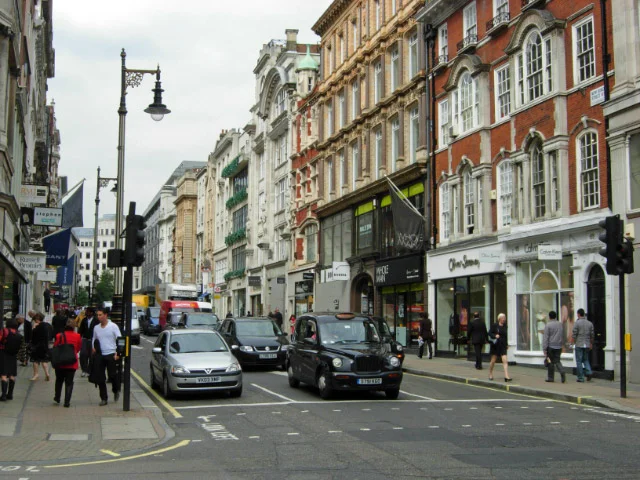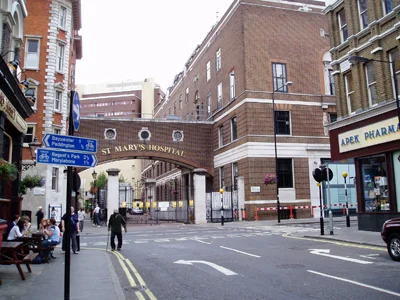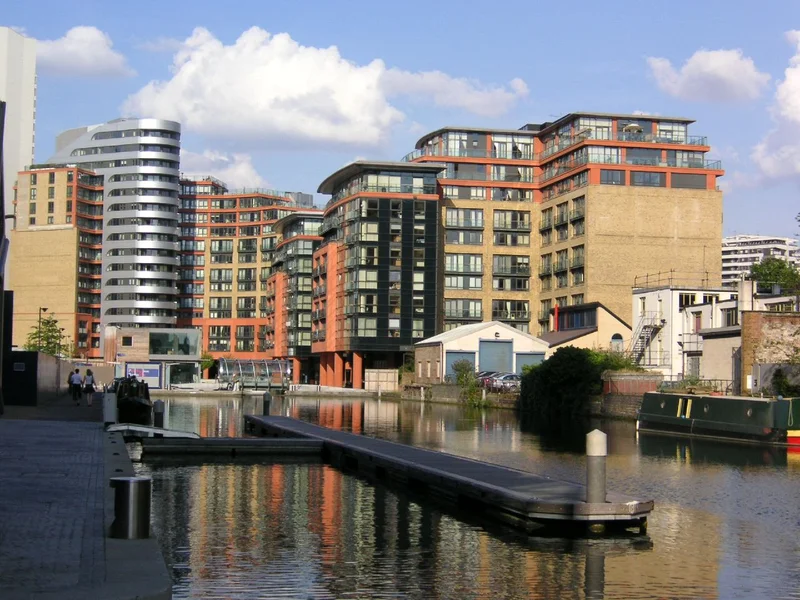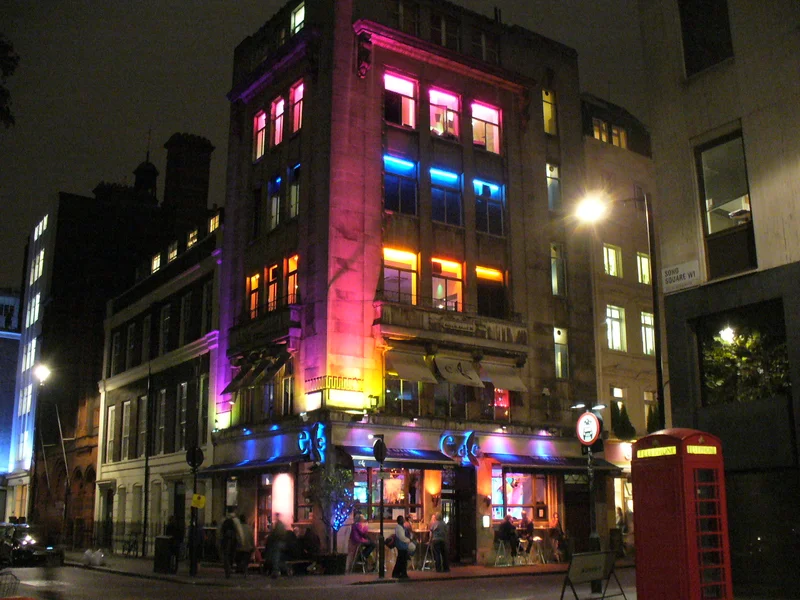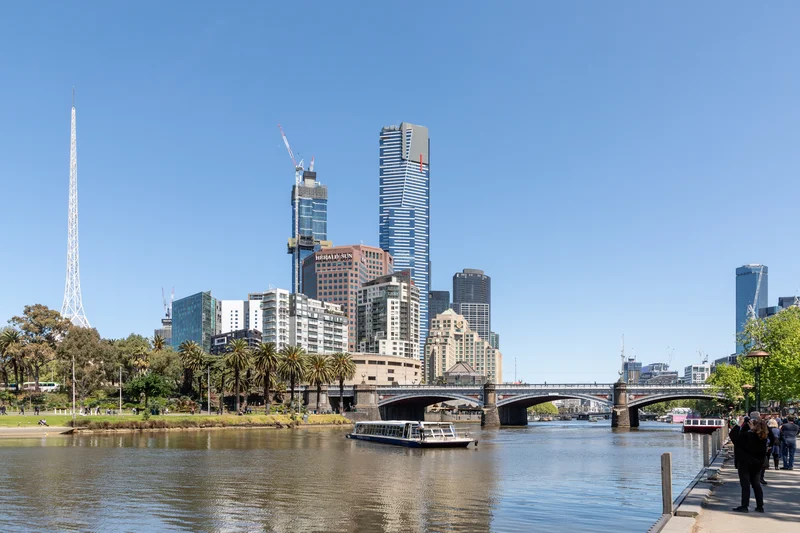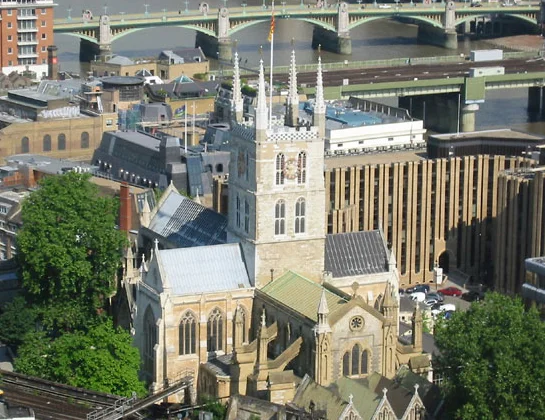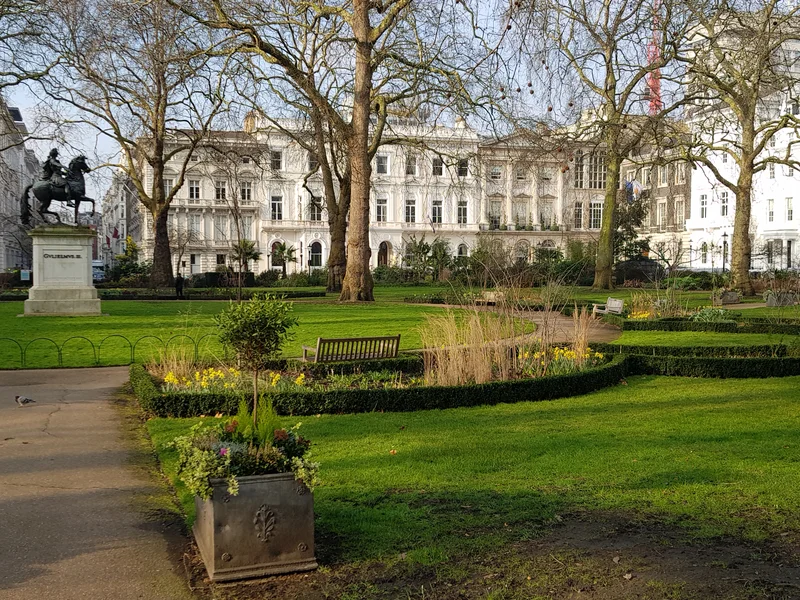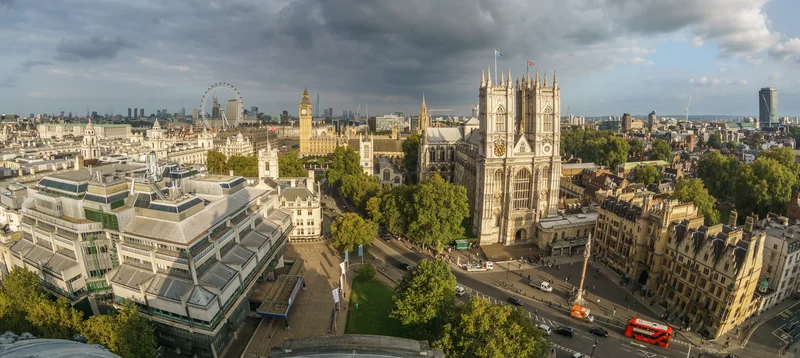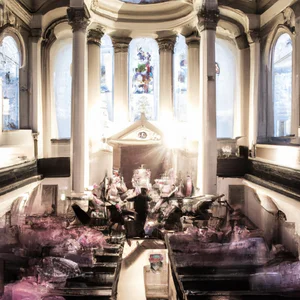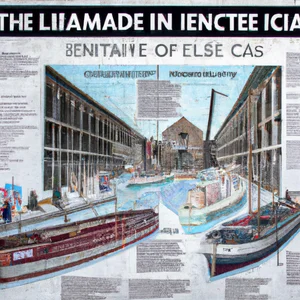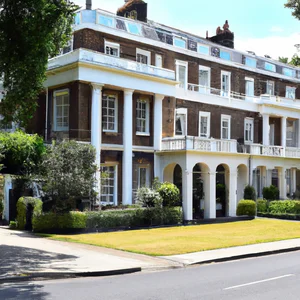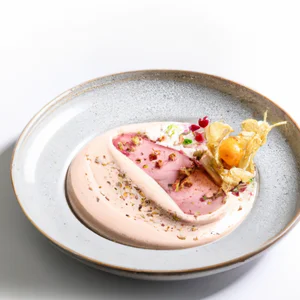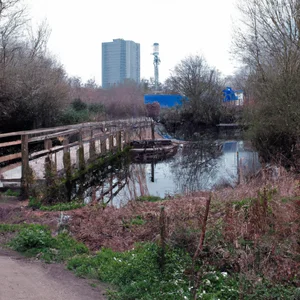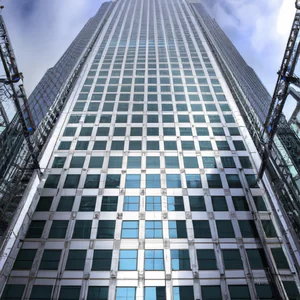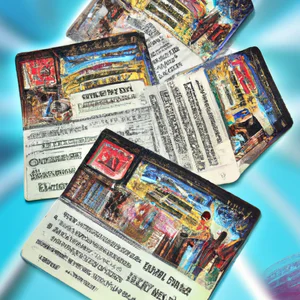Book your experience
Molecular cuisine in London: restaurants experimenting with science and gastronomy
Molecular cuisine in London: restaurants that mix science and gastronomy
So, let’s talk a bit about molecular cuisine in London, which is a bit like a trip to a gastronomic laboratory, and believe me, it’s an experience that will leave you speechless! There are plenty of restaurants out there that enjoy experimenting with science and food, and I’m not just talking about strange dishes, but real culinary magic.
Imagine eating a dessert that looks like a cloud, but is actually an explosion of flavors when you taste it. I think it’s a bit like when you were little and played with mixing colors and in the end you got a surprising result, except that here we’re talking about food, not tempera!
There is a place that really impressed me, it’s called “The Fat Duck”, where chef Heston Blumenthal really does some crazy things. The first time I went, I remember having an appetizer of “oysters and ice cream,” and I felt like I was in a science fiction movie. A mix of flavors that I never imagined could work! But, hey, everything doesn’t always go according to plan, right? Sometimes, when you taste a dish, you think it’s brilliant and other times… well, other times you wonder who thought of it and why.
Well, the nice thing about these restaurants is that they don’t take themselves too seriously. There is an atmosphere of discovery and adventure, and I believe this is fundamental. Molecular cuisine, after all, is a way to break the rules, a bit like when as children we went to explore the forest and discovered places we had never seen before.
Another experience that impressed me was at the “Dinner by Heston” restaurant. I don’t know if you’ve ever tried “meat fruit”, but it’s basically meat in fruit form. It’s so good you almost don’t want to eat it! But, well, once you taste it, you understand that it’s a completely different story. It’s as if the food has a personality of its own, and every bite is a little story.
Of course, not everyone loves this stuff. Some say it’s all a bit too strange and that they prefer traditional cuisine. And that’s fine, everyone has their own tastes, right? But I think trying new things is essential, whether we like it or not. And then, who doesn’t love a bit of entertainment at the table?
In short, if you are in London and feel adventurous, I recommend you give molecular cuisine a try. It may not always be a success, but every experience is a step towards something new. And who knows, maybe you’ll discover a new favorite dish that will make your eyes light up and make you want to come back, just like it did for me!
The best molecular cuisine restaurants in London
A sensorial journey between science and gastronomy
Imagine entering a restaurant in London, where the rules of traditional gastronomy bend under the weight of science. This is exactly what I experienced during my first visit to Dinner by Heston Blumenthal. I ordered a dish called “Meat Fruit”, which presented itself as a perfect orange, but the first bite revealed itself as a delicious liver pâté, covered in a citrus jelly. This is just a taste of what molecular cuisine offers in London, where every dish is a work of art and an experiment at the same time.
Restaurants not to be missed
Dinner by Heston Blumenthal - Located in the luxurious Mandarin Oriental, this restaurant is an homage to British culinary history, but with a futuristic twist. Book early, as places are limited and demand is high.
The Fat Duck - Although a little outside London, in Bray, Blumenthal’s restaurant is a must for those who love innovative cuisine. Don’t miss the “Sound of the Sea” experience, where dishes are served to an ambient soundtrack.
Restaurant Story - With a frequently changing menu, every dish here tells a story. The combination of visual and gustatory elements makes each course a memorable experience.
Sketch - Known for its artistic ambience and whimsical dishes, this restaurant offers a unique take on molecular cuisine with a touch of theatrics.
An insider tip
If you want an even more immersive experience, try to reserve a table for the “Chef’s Table” at one of these restaurants. Here you will have the opportunity to interact directly with the chefs and observe the creative process behind the dishes. This is a fantastic way to understand the science behind every creation.
A cultural context
Molecular cuisine has revolutionized the approach to gastronomy, fusing art and science in a way that stimulates not only the palate but also curiosity. London, with its history of innovation and experimentation, has become an epicenter for this movement. Molecular cuisine restaurants are not just places to eat, but real laboratories of culinary ideas.
A focus on sustainability
Many of these restaurants are taking a step towards more sustainable practices. Some, like Restaurant Story, use local and seasonal ingredients, thus reducing their ecological footprint. This is an excellent example of how gastronomy can evolve while keeping an eye on the environment.
An experience worth trying
I recommend you try a molecular cooking workshop, available in some of these restaurants. Learning how to make juice spheres or flavor foams will give you a new perspective on food and creativity in the kitchen.
Myths to dispel
A common misconception is that molecular cuisine is only for experts or those who love science. In fact, it’s an accessible and fun way to explore food. Each dish tells a story and invites deeper reflection on what we eat.
A final reflection
Next time you’re in London, ask yourself: how willing are they to push the boundaries of culinary tradition? Molecular cuisine isn’t just a meal, it’s a sensory journey that invites you to see food in a new light. Are you ready to explore?
The art of science in the kitchen: what to expect
When I first set foot in one of the molecular cuisine restaurants in London, my palate was ready for a completely different experience. I still remember the moment when the waiter presented a dish composed of small tomato spheres that exploded in the mouth, releasing an intense and fresh flavor. It was as if science had created an edible work of art, where every bite was a sensory adventure.
What to expect from a molecular cuisine restaurant
Molecular cuisine is a fascinating journey that combines gastronomy and chemistry, transforming common ingredients into extraordinary experiences. In such a restaurant, you can expect to see innovative techniques such as the use of liquid nitrogen to create instant ice cream or light foams dancing on top of well-crafted dishes. Each course is designed to stimulate not only taste, but also sight and smell, making every dinner a multisensory experience.
Practical and up-to-date advice
Are you looking for the best molecular cuisine restaurants in London? Don’t miss Dinner by Heston Blumenthal, where British tradition meets scientific innovation. Book early, as places fill up quickly. The Fat Duck, also by Blumenthal, is also an unmissable stop for lovers of culinary innovation.
An insider tip
A little-known tip is to ask the staff to explain the techniques used for each dish. Often, chefs are excited to share their creative process, making the experience even more engaging.
The cultural impact of molecular cuisine
Molecular cuisine, although relatively new, has already left its mark insight into London gastronomy, elevating food to an art form. This approach has inspired a new generation of chefs to experiment and break traditional barriers, making London a hotspot for culinary innovation.
Sustainability and responsibility
Many molecular cuisine restaurants in London are also embracing sustainable practices, using organic and local ingredients. This choice not only supports sustainable agriculture, but also enriches the flavor of the dishes, creating a deeper connection with the territory.
An experience not to be missed
For a memorable experience, try the “meat fruit” from Dinner by Heston Blumenthal, a dish that simulates a tangerine but hides a delicious liver pâté. It’s a perfect example of how molecular cuisine can surprise and delight.
Myths and misconceptions
One of the common myths about molecular cuisine is that it is just a game of shapes and presentations. In reality, behind every dish there is profound scientific research and meticulous attention to the quality of the ingredients.
Final reflection
When you think about molecular cuisine, ask yourself: How can science transform my perception of food? This approach is not just a way to eat, but an opportunity to rediscover food as an artistic and sensory experience. London awaits you with its culinary treasures to explore!
Unique culinary experiences: dishes not to be missed
I still remember my first visit to a molecular cuisine restaurant in London. I was sitting at the table, surrounded by dishes that looked like works of art, when the waiter brought an experience that would change the way I see cuisine: a tomato ice cream served with a splash of citric acid, which exploded in my mouth like a firework of flavours. This wasn’t just a meal, it was a sensory journey that awakened my senses in ways I never thought possible.
The unmissable dishes
If you’re exploring the molecular cuisine scene in London, there are some dishes you absolutely can’t miss:
Spherification of cocktails: A classic of molecular cuisine, where liquids are transformed into small spheres that explode in the mouth, revealing intense flavors. Try the famous “gin and tonic” revisited at “Dinner by Heston Blumenthal”.
Smoke dessert: Don’t miss the innovative wood smoke panna cotta from “The Fat Duck”. This dish is not only a visual experience, but also an aromatic journey that will remain etched in your memory.
Coffee Sauce with Liquid Nitrogen: At “Aulis London”, you can enjoy a coffee sauce frozen with liquid nitrogen, which offers an incredible contrast with the heat of a chocolate dessert.
Insider tip
A little-known tip: book a table at the kitchen counter. Many molecular cuisine restaurants offer this option, allowing you to see firsthand the process of preparing the dishes. Not only will you have the opportunity to interact with the chefs, but also have an immersive experience that makes the meal even more memorable.
The cultural impact
Molecular cuisine has had a profound impact on London’s food culture, challenging convention and pushing the boundaries of what we could consider food. He paved the way for a new generation of chefs who see cooking not only as an art, but also as a science. This approach has influenced not only high-end restaurants, but also home kitchens, where molecular techniques are gaining more and more popularity.
Sustainability and responsibility
In an age where sustainability is crucial, many molecular cuisine restaurants in London are making responsible choices. They use local and seasonal ingredients and reduce waste through innovative techniques. For example, “Noma” has adopted practices that encourage respect for the environment, transforming undervalued ingredients into extraordinary dishes.
An experience worth trying
If you are curious to try molecular cuisine, I recommend taking part in a molecular cuisine workshop. Many restaurants offer courses that allow you to explore these techniques and create your own unique dishes. It’s a fantastic way to learn directly from experts and bring a little molecular magic into your home.
Myths and misconceptions
A common misconception is that molecular cuisine is just a visual art, devoid of substance. In reality, the science behind these dishes aims to enhance flavors and sensory experiences, creating a perfect balance between aesthetics and taste.
Reflecting on this experience, I ask myself: how can molecular cuisine change the way we perceive food and, ultimately, our gastronomic culture? I leave the answer up to you, inviting you to explore these innovative restaurants and discover the power of science in the kitchen.
History of molecular cuisine: a fascinating journey
I still remember my first experience with molecular cuisine, a journey that took me to the beating heart of London, where culinary innovation blends with tradition. Entering one of the most renowned restaurants in the capital, I was greeted by an electrifying atmosphere, marked by a play of lights and colors that promised an unforgettable evening. The first course, a sphere of tomato exploding in my mouth, made me realize that cooking had become an art form. This is just the beginning of a fascinating story that has revolutionized the way we think about food.
The origin of molecular cuisine
Molecular cuisine emerged in the 1980s, thanks to pioneers like Ferran Adrià and Hervé This, who combined science with gastronomy to explore new techniques and flavors. In London, this culinary revolution has found fertile ground, attracting visionary chefs who have pushed the boundaries of creativity. Over the years, molecular cuisine has become a symbol of avant-garde and experimentation, elevating catering to a level never seen before.
An insider tip
For those who want to completely immerse themselves in this world, I recommend booking a table at Alain Ducasse’s D.O.M. restaurant, where the experience is not limited only to the food, but extends to the interaction with the chefs who they explain the techniques used in real time. This approach is uncommon and allows you to fully appreciate the art of science in the kitchen.
Cultural and historical impact
Molecular cuisine has had a profound impact on London’s food culture. He challenged culinary conventions, transforming the way dishes are perceived and served. Today, many London restaurants are inspired by this philosophy, using fresh ingredients and innovative techniques to create a unique experience. This movement has also stimulated a broader dialogue on sustainable gastronomy and responsibility in choosing ingredients.
Sustainability and responsibility
In an age where sustainability has become an imperative, many molecular cuisine restaurants in London are committed to using local and organic ingredients. Practices such as recycling and waste reduction are increasingly common, demonstrating that innovation and responsibility can coexist.
An activity worth trying
For a truly immersive experience, take the time to attend a molecular cuisine workshop. Several cooking schools in London offer practical courses, where you can learn fundamental techniques and prepare your own innovative dishes. This will not only enrich your experience, but also give you the chance to take home a piece of this fascinating culinary history.
Myths and misconceptions
A common misconception about molecular cuisine is that it’s all about fumes and visual tricks. In reality, it is based on a deep understanding of food chemistry, aimed at enhancing textures and flavors in unexpected ways. It is an art that requires precision and creativity, where each dish tells a story.
In conclusion, molecular cuisine in London is not just a way to eat; it is a journey through science and art, a reflection on the evolution of gastronomy. Are you ready to discover how food can surprise and delight your senses? Which innovative dish would you like to try?
Sustainability in restaurants: a responsible choice
A personal journey into sustainability
I remember the moment I walked through the door of one of London’s most innovative molecular cuisine restaurants. The air was filled with the scent of fresh herbs and spices, while the dishes that were served were not only a pleasure for the palate, but also for the eyes. However, what impressed me most was the restaurant’s commitment to sustainable practices. Each ingredient was carefully chosen, sourced from local suppliers who followed organic farming methods. In a world where food often travels thousands of miles, this restaurant stood out for its dedication to responsible cooking.
Practical and up-to-date information
In London, molecular cuisine is not just a culinary experience, but also an opportunity to support a greener future. Restaurants like The Fat Duck and Dinner by Heston Blumenthal not only offer amazing dishes, but are also actively committed to reducing waste and sourcing sustainable ingredients. For those looking for up-to-date information on eco-friendly restaurants, the Sustainable Restaurant Association site is a valuable resource that provides a comprehensive list of restaurants that adhere to high sustainability standards.
An insider tip
A little-known tip is to ask restaurant staff about their suppliers. Many of them are proud to share the stories of the small local farms they source from. This not only enriches the dining experience, but can also lead to surprising discoveries about how food is produced and prepared.
The cultural impact of sustainability
The growing focus on sustainability in restaurants in London reflects a wider cultural shift. In recent years, Londoners have developed a greater awareness of the origins of their food and its impact on the environment. This has led to an increase in demand for restaurants that not only offer delicious dishes, but are also ecologically responsible.
Sustainable tourism practices
Choosing to eat in restaurants that adopt sustainable practices is a choice that can contribute to more responsible tourism. By opting for dishes made from local, seasonal ingredients, visitors can support the local economy and reduce their ecological footprint. Additionally, many restaurants also offer vegetarian and vegan options, which are generally less impactful to the environment.
An experience worth trying
If you have the opportunity to visit London, don’t miss the chance to attend a molecular cuisine workshop, where you can learn to create innovative dishes using sustainable techniques. These experiences are not only fun, but they will also allow you to take home new culinary skills.
Addressing the myths
A common misconception about molecular cuisine is that it requires exotic and expensive ingredients. In fact, many sustainable restaurants use simple, local products, transforming them into extraordinary gastronomic experiences through innovative techniques. This approach is not only more accessible, but it is also a way to reduce waste and support local agriculture.
Final reflections
As you explore the molecular cuisine landscape in London, I invite you to reflect on how your food choices can have an impact. By choosing to support restaurants that embrace sustainability, you can not only delight your palate, but also contribute to a more responsible future for our planet. Which innovative and sustainable dish do you want to try on your next trip?
A chemical cocktail: mixology and innovation
The soft lights and vibrant atmosphere of a mixology bar in London are the perfect stage for an experience that transcends simple drinking. I remember the first time I sipped a cocktail prepared by a local mixologist. The drink, a liquid work of art, was an explosion of flavors, colors and textures, with an incredible alchemy of ingredients that seemed to defy the laws of physics. Each sip was a sensorial journey, an ode to molecular cuisine applied to mixology.
A dive into the world of molecular cocktails
Mixology in London is experiencing a golden age, where science and art intertwine to create innovative cocktails. Using molecular techniques like spherification and smoking, bartenders transform common ingredients into extraordinary experiences. Bars like Experimental Cocktail Club and Dandelyan (now Lyaness) are pioneers in this field, offering drinks that not only delight the palate, but also stimulate curiosity. According to a recent Time Out London article, the city is a beacon for lovers of creative cocktails, with a variety of venues pushing the boundaries of mixology.
An insider tip
A little-known trick: ask the bartender to create a personalized drink based on your preferences. London mixologists are often happy to experiment and use fresh, local ingredients, creating a unique cocktail that you won’t find on the menu. This approach not only makes the experience more personal, but also allows you to appreciate the freshness and quality of the ingredients.
The cultural impact of mixology
This fusion of science and creativity is a reflection of London culture, where tradition meets innovation. Molecular mixology emerged as a response to the growing demand for unique gastronomic experiences, transforming cocktails into true works of art. The techniques used not only enrich the customer experience, but also tell stories of experimentation and adventure in the world of cooking.
Sustainability and responsibility
Many mixology bars in London are embracing sustainable practices, using organic and local ingredients and reducing waste. It is possible to find cocktails prepared with seasonal fruit and locally harvested botanicals, thus contributing to responsible and conscious tourism.
Immerse yourself in the atmosphere
Imagine walking into a bar where the air is filled with smoky aromas and fresh ingredients. The bartenders, with the skill of artists, act like real alchemists, mixing powders, liquids and spheres of flavor before your eyes. The sound of the shakers and the clinking of the glasses create a symphony that accompanies every sip.
Experience a unique experience
Don’t miss the opportunity to participate in a mixology workshop, where you can learn to create your own molecular cocktails. Many bars offer hands-on courses that will allow you to explore the science behind creating the perfect drink.
Myths and misconceptions
A common misconception is that molecular mixology is just a passing fad or reserved for a small elite. In reality, it is an evolution of traditional mixology that makes the world of cocktails accessible to all, inviting anyone to explore and experiment with new flavors and techniques.
Final reflection
Molecular mixology in London isn’t just a way to drink, it’s an experience that involves all the senses. You I invite you to consider: what would your ideal cocktail be? What personal ingredients would you like to see transformed into a sipping work of art?
Molecular cuisine in London: a sensorial experience
I still remember the first time I crossed the threshold of a molecular cuisine restaurant in London. The air was filled with a mix of innovative and surprisingly familiar fragrances, as a sweet caramel aroma mixed with a note of fresh lime. My curiosity was palpable, and I had no idea that I would witness a veritable symphony of science and culinary art. Every dish that was served was a work of art, but it was also a chemical discovery.
A journey through the senses
Molecular cuisine is more than just a meal; it is an experience that involves all the senses. Imagine tasting a sphere of olive oil that explodes in your mouth, releasing a wave of freshness. Or enjoy instant ice cream prepared with liquid nitrogen, which melts in a cloud of fascinating white fumes. Each dish is designed to surprise and delight, transforming food into a multi-sensory experience. Restaurants like Dinner by Heston Blumenthal and The Fat Duck are pioneers in this field, offering menus that combine tradition and innovation.
Insider tip
A little-known tip: in molecular cuisine restaurants, don’t be afraid to ask for information on the dishes and techniques used. The chefs are passionate and love to share their knowledge. This will not only enrich your experience, but may also lead you to discover secret dishes or menu variations that are not advertised.
The cultural impact
Molecular cuisine in London represents a fusion of culinary cultures and modern technologies. Born as a gastronomic movement in the 1990s, it quickly gained popularity among high-class restaurants. London, as a gastronomic capital, has become a fertile ground for this art form, attracting chefs from all over the world. Molecular cuisine restaurants not only offer innovative dishes, but also contribute to a broader cultural dialogue about the science of food and its role in society.
Sustainability and responsibility
Let’s not forget the importance of sustainability in molecular cuisine. Many London restaurants are embracing responsible practices, using local and sustainable ingredients and reducing food waste through innovative techniques. This focus on sustainability is not only good for the planet, but also enriches the dining experience, ensuring fresh, high-quality dishes.
Experiences to try
If you are in London, you cannot miss a molecular cooking course. Several cooking schools, such as The Cookery School, offer workshops where you can learn to create your own molecular delights, from fruit foam to instant ice cream. It’s a fun and engaging way to discover the secrets of this culinary art.
Myths and misconceptions
A common myth is that molecular cuisine is only for science enthusiasts or gourmets. In reality, it is accessible to everyone and offers a unique culinary experience, capable of fascinating even the most traditional palates. Don’t be discouraged by complicated terms: each dish tells a story and invites you to explore new gastronomic horizons.
A final reflection
Molecular cuisine in London is more than just a meal; is an invitation to explore the complexity and beauty of food through the lens of science. It’s an experience that can change the way we see and appreciate what we eat. Are you ready to immerse yourself in this fascinating world and discover the wonders that molecular cuisine has to offer?
Insider tips: how to book an exclusive table
Imagine finding yourself in the beating heart of London, surrounded by a vibrant and cosmopolitan atmosphere, as you prepare to enjoy a culinary experience that challenges the laws of tradition. It was a cold November evening when, crossing the threshold of a molecular cuisine restaurant, I realized how much this innovative approach could transform a simple meal into a real sensorial adventure. The table was set with dishes that looked like works of art, each telling a story of gastronomic exploration.
Reservations: a crucial step
If you want to savor the magic of molecular cuisine in London, booking in advance is essential. Restaurants like The Fat Duck or Dinner by Heston Blumenthal have such high demand that tables fill up quickly. Use platforms like OpenTable or the restaurant’s official website to guarantee your experience. Some restaurants also offer seats for dinner at the counter, where you can watch the chefs at work: an unmissable option for enthusiasts!
A little-known tip
Here’s an insider tip: don’t limit yourself to booking just for dinner. Many molecular cuisine restaurants offer dining at a more affordable price, without compromising the quality of the experience. Plus, lunches can be less crowded, allowing you to enjoy more attentive service and immerse yourself in the details of each dish.
The cultural impact of molecular cuisine
Molecular cuisine is not just an innovation, but a real cultural movement that has revolutionized the London gastronomic scene. Originating in the 1980s, it has become a symbol of the fusion between art and science, reflecting the creative soul of the city. Restaurants like Noma and El Bulli led the way, and London has embraced this trend with enthusiasm, becoming a hub for avant-garde gastronomy.
Sustainability and responsibility
One aspect that is often overlooked is the commitment to sustainability by many of these restaurants. Using local and seasonal ingredients not only improves the freshness of the dishes, but also reduces the environmental impact. Be sure to ask about supplies during your visit to further appreciate the efforts of the restaurateurs.
An experience not to be missed
If you are looking for a unique experience, I recommend taking part in a molecular cuisine workshop. Several cooking schools in London offer practical courses, where you can try your hand at techniques such as spherification and the use of liquid nitrogen. Not only will you learn, but you will also have the opportunity to savor your creations!
Myths to dispel
Contrary to what you might think, molecular cuisine is not cold or impersonal. On the contrary, it enhances conviviality and the pleasure of sharing a meal. Each dish is designed to stimulate conversations, with combinations that surprise and delight the palate.
Final reflection
As you prepare to book your exclusive table, ask yourself: how ready are you to be surprised by a new dimension of gastronomy? London awaits you with dishes that challenge the imagination and a culinary experience that stimulates not only taste, but all the senses.
Restaurants that tell stories: London food culture
A journey through flavors and stories
Whenever I think about molecular cuisine in London, I can’t help but remember an unforgettable evening in a restaurant that felt like a science laboratory. Sitting at the table, I witnessed a show that went beyond the simple act of eating: it was an experience that told stories, stories of ingredients, techniques and cultures. The dish that impressed me the most was an artichoke ravioli that melted in the mouth, releasing an explosion of flavors that catapulted me into a sensorial journey. It’s as if each dish had its own narrative, a message from reveal.
Where to find these food stories
In London, molecular cuisine restaurants are not just places to eat, but authentic gastronomic theaters. Places like Dinner by Heston Blumenthal and The Fat Duck are famous not only for their innovative dishes, but also for the stories that accompany them. Heston, for example, draws inspiration from British culinary history, reinterpreting classic dishes in ways that defy logic and breathe new life into forgotten recipes. This is where science meets tradition, creating a bridge between past and present.
An insider tip
Here’s a little-known tip: Many molecular cuisine restaurants offer tasting experiences that go beyond the traditional menu. Ask if they have secret tasting options or specials of the day that aren’t listed. This is often a chance to savor unique creations, which you will never find online or in reviews.
A profound cultural impact
Molecular cuisine has a profound impact on London’s food culture, representing a fusion of art and science that reflects the city’s ongoing innovation. This approach has also paved the way for a greater focus on sustainability, with many chefs seeking local ingredients and responsible practices, thus contributing to a more conscious culinary world.
Atmosphere and involvement
Entering one of these restaurants is like entering a fantasy world. The soft lights, the scent of fresh ingredients and the sound of dishes being prepared with precision create an atmosphere that stimulates the senses. Each dish is a small work of art, designed to surprise and enchant.
An experience worth trying
If you are in London, don’t miss the opportunity to book a table at one of these innovative restaurants. Try a cocktail at the Clove Club, where mixology is transformed into an interactive experience, and be amazed by how a simple drink can become a journey through flavors and textures.
Myths and misconceptions
A common misconception about molecular cuisine is that it’s all about experimentation and exotic ingredients. In fact, it is an art that requires precision and in-depth knowledge of food chemistry. Each dish is the result of years of study and research, a true tribute to the science of eating.
Final reflection
In conclusion, molecular cuisine in London is not just a way to eat differently; it’s an opportunity to explore culinary stories that defy expectations. The next time you sit at the table, ask yourself: what story does the dish you are about to taste tell? And, above all, are you ready to be surprised?
Local tastings: a taste of authentic London
An unforgettable experience
I still remember the first time I set foot in a small restaurant in Camden, where molecular cuisine was not just a way of cooking, but a real show. As the chef, in his white jacket, moved between the tables, spraying liquid nitrogen on a fruit dessert, the room filled with a cold vapor that seemed to transport us to another world. That moment changed my way of seeing food: it was no longer just nourishment, but an art capable of stimulating the senses in unexpected ways.
Practical information
London, with its thriving food scene, offers a myriad of options for those looking to explore molecular cuisine. Restaurants like Dinner by Heston Blumenthal and The Fat Duck are famous for their innovative creations, but don’t forget to check out hidden gems like The Clove Club and Pollen Street Social. Booking a table is essential, especially on weekends. You can do this directly via their official websites, which often offer seasonal tasting menus.
An insider tip
Here’s a tip that few know: many molecular cuisine restaurants in London offer private tastings or exclusive events. These events will not only allow you to taste unique dishes, but also to interact directly with the chefs, learning the secrets of these extraordinary techniques. Don’t forget to ask if there are any events planned during your visit!
The cultural impact
Molecular cuisine has revolutionized the way we think about food, mixing science and art in perfect harmony. In London, this gastronomic art form emerged as a response to British culinary tradition, which has undergone a renewal thanks to the influence of visionary chefs. This movement not only attracted discerning palates, but also contributed to a broader debate about the nature of food and the importance of innovation in cooking.
Sustainability and responsibility
Many molecular cuisine restaurants are embracing sustainable practices, using local and seasonal ingredients to minimize environmental impact. Choosing fresh ingredients not only supports the local economy, but also ensures superior quality dishes. Check, for example, if the restaurant you choose collaborates with local producers or adopts eco-friendly practices.
An immersive atmosphere
Entering a molecular cuisine restaurant in London is like entering a laboratory of taste experiments. The dim lights, the sound of kitchen equipment and the smell of fresh ingredients create an electrifying atmosphere. Every dish that arrives at the table is a small work of art, from the design to the explosion of flavors. Savoring a spherical of olives or a nitro ice cream becomes an experience that involves all the senses.
Activities to try
If you are looking for an unforgettable experience, why not attend a molecular cuisine workshop? Several cooking schools in London offer courses where you can learn to create your own innovative dishes and take a piece of that experience home. It’s a fun and engaging way to immerse yourself in the world of scientific cooking.
Myths to dispel
It is important to underline that, contrary to what you might think, molecular cuisine is not just for gourmets. It is an art accessible to all, which invites you to explore and have fun with food. Many may believe that it is overly complicated or reserved for high-class restaurants, but in reality, molecular techniques can also be used in home cooking.
A final reflection
Molecular cuisine in London is more than just a meal; it is an experience that challenges conventions and stimulates creativity. After tasting an innovative dish, I invite you to reflect: how can food transform into a sensorial experience that goes beyond the simple act of eating? What struck you most in your culinary experience?

 Architecture and Design
Architecture and Design Cities and Regions
Cities and Regions Culture and History
Culture and History Events and Festivals
Events and Festivals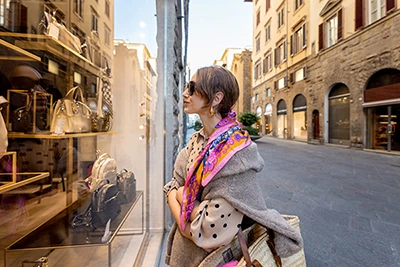 Fashion and Shopping
Fashion and Shopping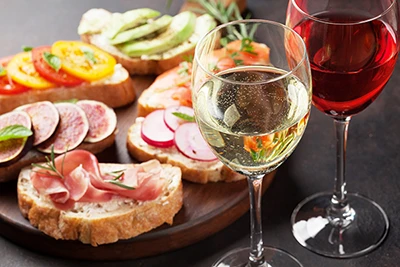 Food and Wine
Food and Wine Nature and Adventure
Nature and Adventure Unique Experiences
Unique Experiences